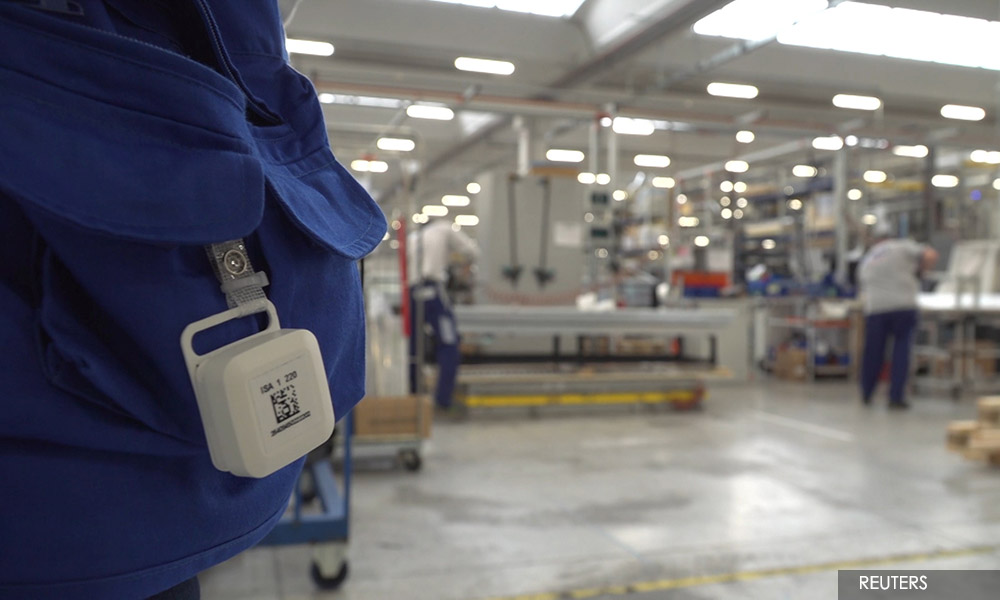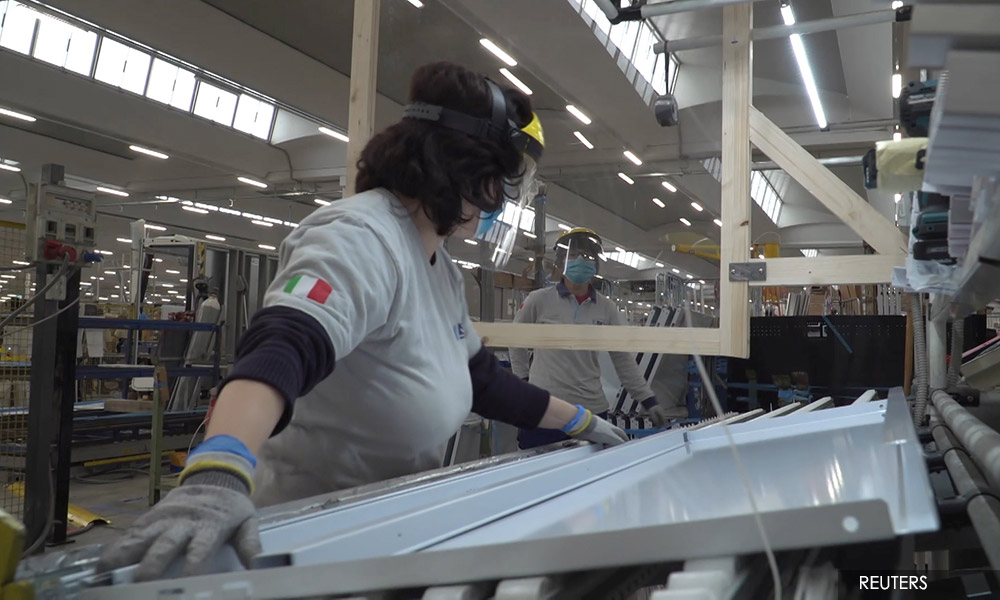CORONAVIRUS | Simone Mela never dreamed that a traffic light would determine when he could take a bathroom break in the factory where he works. But in the world according to coronavirus, that is the new normal.
And he feels lucky to have a job. Only 200 of the 800 workers at the ISA company, which makes refrigerated display cases for bars, restaurants and supermarkets, have so far been able to return to the factory in Italy's Umbria region.
The gradual return has been made possible through a combination of solutions ranging from simple to innovative to high tech.
Strips taped on the floor create walking lanes and delineate work areas.
A yellow and green traffic light system was installed to keep the bathrooms safe. Workers flick a switch as they enter or leave the bathroom and the colour of the light tells those who want to enter if they can or have to wait.
The high-tech end of the company's back-to-work strategy is a system known as SWAT, or System Workers Advance Tracing.
Employees scan an app onto their smartphones and clip a small white device on to their work clothes.
It vibrates if they get too close to another worker and simultaneously sends a signal to a computer database.

"We are sure that it is not a tool to spy on us. It is only a device to increase safety distances and to report close contacts," said Mela. "If we find a positive case, it will be easier to trace the contacts they had. We feel very safe."
A similar system is on trial in the port of Antwerp.
ISA's managers realised that if they wanted to stay in business, they had no choice but to modify work patterns and safety measures.
"To help people to cope with this virus - which unfortunately won't be going away in coming days and weeks - we developed a hardware and software system to help people work together in a safe way and adhere to social distancing,' said ISA's general manager, Marco Giulietti.
Employees' body temperatures are checked when they enter the factory and they all wear masks, gloves and face shields.
To provide further protection, plexiglas dividers have been put up between work stations along the assembly line. But they extend from the waist up so workers can still pass material and talk to each other.

- Reuters

